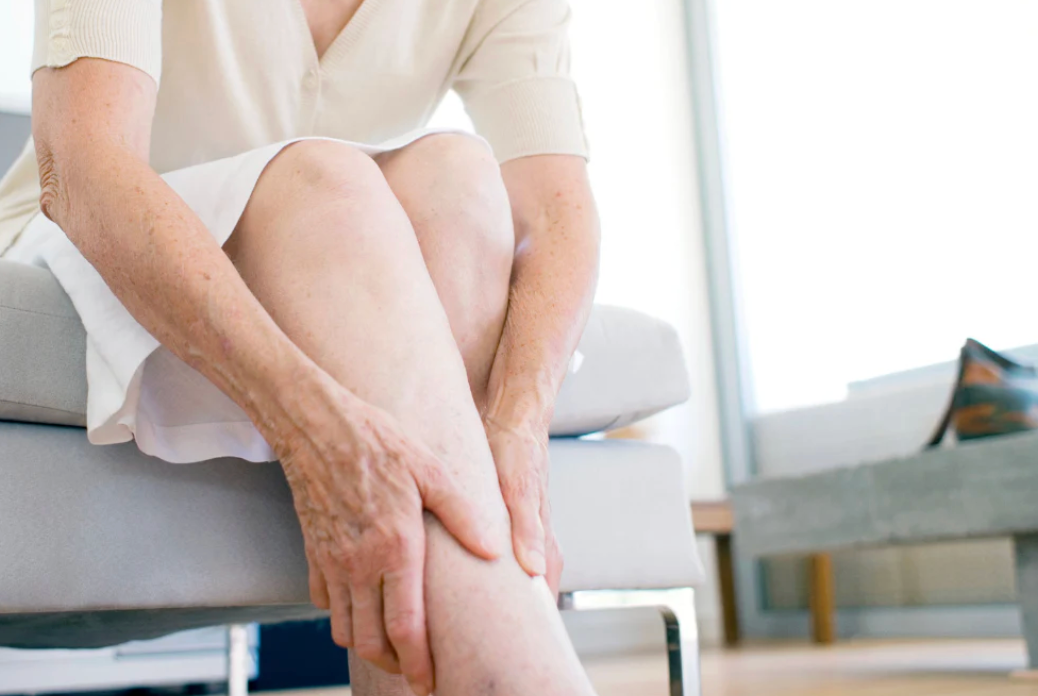Inflammatory conditions are growing more prevalent in society, particularly throughout the western world. As our population ages and people take on more stress and move less, it’s important that we’re informed and educated on what inflammation is, how it can lead to more complex health problems, and natural treatments for inflammation and pain1.
What is Inflammation?
Inflammation is the body’s natural response to protect itself against harm. It can be localised (such as a break in the skin or a broken bone) or may affect the entire body systemically, such as with chronic immune dysfunction or influenza. Inflammation usually presents as:
- Redness
- Swelling
- Pain
- Heat
Difference Between Acute and Chronic Inflammation
Similar to acute and chronic pain, we need to be aware of the difference between acute and chronic inflammation.
1) Acute - Most people are familiar with acute inflammation and have experienced it before. If you were to bang your knee or cut your finger, your immune system dispatches an army of white blood cells to surround and protect the area. This is what creates the redness and swelling around the area, and the process works similarly if you have an infection, like the flu or pneumonia.
In these settings, inflammation is essential - without it injuries could fester and simple infections could be deadly2.
2) Chronic - If the inflammatory state persists for an extended period of time, this is when it becomes chronic and the point where the inflammatory response may cause additional health concerns.
Over time, chronic inflammation may have a negative impact on your tissues and organs. The substances which produce swelling, redness, and heat are also responsible for the irritation of nerve endings of the tissue affected, contributing to the pain that accompanies inflammatory conditions2.
Causes of Chronic Inflammation
Chronic inflammation can result from prolonged acute inflammation or extended exposure to a low level irritant, unable to be eliminated naturally by the body. It can also be caused by:
- Exposure to external irritants, chemicals, or foreign materials that the body can’t break down;
- An autoimmune disorder, in which the immune system attacks healthy tissue giving rise to diseases such as Rheumatoid Arthritis (RA) and Lupus (SLE);
- Recurring episodes of acute inflammation;
- Ongoing stress or chemical inducers that cause stress in the body3.
These autoimmune disorders can lead to tissue damage, fatigue, depression, and disability; in a downward spiralling cascade of unresolved problems. At this point, your body needs all the assistance it can get in order to regain balance and health.
We must remember that we are not just treating the inflammation, but we must treat the cause in order to prevent or best support the body to heal from chronic inflammation.
Lifestyle Changes to Manage Inflammation And Pain
1) Adopting an Anti-Inflammatory Diet
An anti-inflammatory diet is one that may reduce inflammation by replacing processed, high-sugar foods with pure, natural, whole, nutrient-rich foods. We are what we eat!
Management of the symptoms of inflammation requires immediate removal of any foods that may increase inflammation, whilst also adding the foods that decrease inflammation.
Foods which may help reduce and prevent further inflammation are olive oil; green leafy vegetables, such as kale and spinach; salmon; tuna; sardines and other fatty fish; blueberries; and spices, such as turmeric.
If you do not eat enough deep water fish then you may be deficient in Omega 3 essential fatty acids. This can create an imbalance compared to high levels of Omega 6-rich oils found in animal meats, which would exacerbate the inflammation. In these cases, a supplement should definitely be considered.
Foods you should avoid include processed meats, fried foods, white foods (pasta, rice and bread), gluten, caffeine, and too much alcohol.
As a Naturopath, I would also suggest taking a probiotic, which may help to reduce inflammation. We all need probiotics and - if inflammation is your main concern - a probiotic to help reduce inflammation in the gut and systemically is very helpful.
Also, remember to drink plenty of fresh (preferably filtered) water. Every cell in our body is dependent on water, and it is so important to the healthy functioning of all our systems.

2) Weight Management
Increased stress, obesity, and insulin resistance have a complex cascade of events that can lead to inflammation. Excess body fat means that there are more fat cells and these cells produce cytokines, which are the proteins that promote inflammation.
People who develop insulin resistance usually have higher levels of these cytokines, which are believed to interfere with the body’s ability to use its own insulin—hence insulin resistance. One of insulin’s jobs is to help move glucose from the blood into the cells for energy. When blood glucose remains elevated, despite normal levels of insulin, this is called insulin resistance.
As well as insulin resistance, obesity can also increase existing inflammation by aggravating the joints. The more weight you are carrying puts more pressure on the joints, which will inevitably cause additional pain.
Maintaining a healthy weight means the body naturally has less fat cells, decreasing the likelihood of insulin resistance and undue pressure on the joints that cause additional inflammation.
3) Quality Sleep
We all know that sleep is essential for good health and vitality, and a lack of sleep leads to fatigue.
Inflammation interferes with the mitochondria in the cells and it is the mitochondria which gives us the energy that keeps us going, physically and mentally. Sleep deprivation is also known to impact the mitochondria, both causing additional stress on the body4.
It can become quite a vicious cycle. If you have inflammatory disease, like arthritis, or an injury (such as a sore leg), you are more likely to stay awake at night due to the discomfort. As a result, your quality of rest is affected and poor sleep can lead to inflammatory disorders, such as heart disease and diabetes.
Getting eight hours of sleep each night, and aiming to go to bed and wake up at the same time helps to maintain a good sleep cycle and wake up feeling well-rested.
Addressing diet, exercise, and stress will assist in reducing inflammation and other factors potentially interfering with a good sleep. Once inflammation is reduced, proper sleep will be restored and, when sleep is restored, healing will follow.
For aiding sleep and relaxation, try Calming Lifestyle Blend.

4) Stress Reduction
Inflammation is the direct result of immune activation, and any process that activates the immune system triggers the stress response. As with sleep deprivation, it is a vicious cycle as stress actually activates an inflammatory response and inflammation creates more stress. It is, therefore, important to include things in your daily life that help to address the stress response.
This could be doing yoga or meditation, using essential oils to promote relaxation and sleep, or perhaps having a massage or reflexology treatment, if you can. As a practitioner I particularly love reflexology as it helps ground you and reduce mental stress, as well as giving balance to the entire body.
Our essential oil blends Calming, Relaxation and Stress Relief are perfect to use in an aromamizer or diffuser. Simply add 2-4 drops of your chosen blend to help balance mind and body.
Whatever it is that relaxes you, include it regularly in your life and - if possible - try and address the area of your life causing you the most stress, such as work or a relationship.
5) Exercise
It has been found that exercise done on a regular basis can stimulate the immune system and produce an anti-inflammatory response.5 You should try for 30-40 minutes of moderate intensity of aerobic exercise each week, as well as some strengthening exercises, such as weights.
Your fitness level, current health, and lifestyle considerations will determine the best type of exercise to incorporate in your life. Low impact aerobic exercises such as walking, cycling, or swimming may be preferable alternatives as they are easier on the joints.
A sedentary lifestyle can aggravate and exacerbate inflammation, so it’s important to incorporate movement of some kind into your daily life. Making small changes can be a great start, especially if you are in pain due to inflammation.
We are what we eat, drink, do, and think
When we address these five important steps to reduce inflammation, we are treating our bodies in a holistic way, and will begin seeing improvements in all areas of our lives.
This will also likely mean that over-the-counter and prescription medication become less necessary and that topical application of natural products formulated to help address inflammation (such as our Kunzea Pain Relief products) will be far more effective.

About the Author - Michelle Brass ND
With over 25 years of experience in the natural health industry, Michelle has dedicated her life to helping others embrace the therapeutic benefits of nature. Throughout her time as a health practitioner, she has used and recommended countless traditional and conventional treatments to her clients - as she believes an integrative approach to health and wellness is very important. Michelle is passionate about using and promoting essential oils and, in particular, Kunzea Oil, as she has seen them help thousands of people over the years. She knows that using essential oils in your daily life can help bring balance to the mind, body and soul. She is constantly trialling and testing new products with her loyal clients.
To learn more about Michelle, go to her full bio page.
References
- Arthritis Australia. The Case For Change. p. 4. In: Time To Move: Arthritis; 2014.
- Harvard Health Letter. Inflammation: A Unifying Theory Of Disease. https://www.health.harvard.edu/newsletter_article/Inflammation_A_unifying_theory_of_disease. Accessed April 26, 2020.
- Roma Pahwa1; Amandeep Goyal2; et al. Chronic Inflammation. https://www.ncbi.nlm.nih.gov/books/NBK493173/. Accessed 26 May 2020.
- Rodrigues NR, Macedo GE, Martins IK, et al. Short-term sleep deprivation with exposure to nocturnal light alters mitochondrial bioenergetics in Drosophila. Free Radic Biol Med. 2018;120:395-406. doi:10.1016/j.freeradbiomed.2018.04.549. Accessed Aril 26, 2020.
- Peterson, AM and Pedersen, BK. The Anti-Inflammatory Effect of Exercise in Journal of Applied Physiology. https://journals.physiology.org/doi/full/10.1152/japplphysiol.00164.2004. Accessed April 26, 2020.
All content by Australian Kunzea Pty Ltd, including: text, images, audio, or other formats were created for informational purposes only. Offerings for continuing education credits are clearly identified and the appropriate target audience is identified. The content is not intended to be a substitute for professional medical advice, diagnosis, or treatment. Always seek the advice of your physician or other qualified health provider with any questions you may have regarding a medical condition. Never disregard professional medical advice or delay in seeking it because of something you have read on this website. Click here to read our full Medical Disclaimer.



